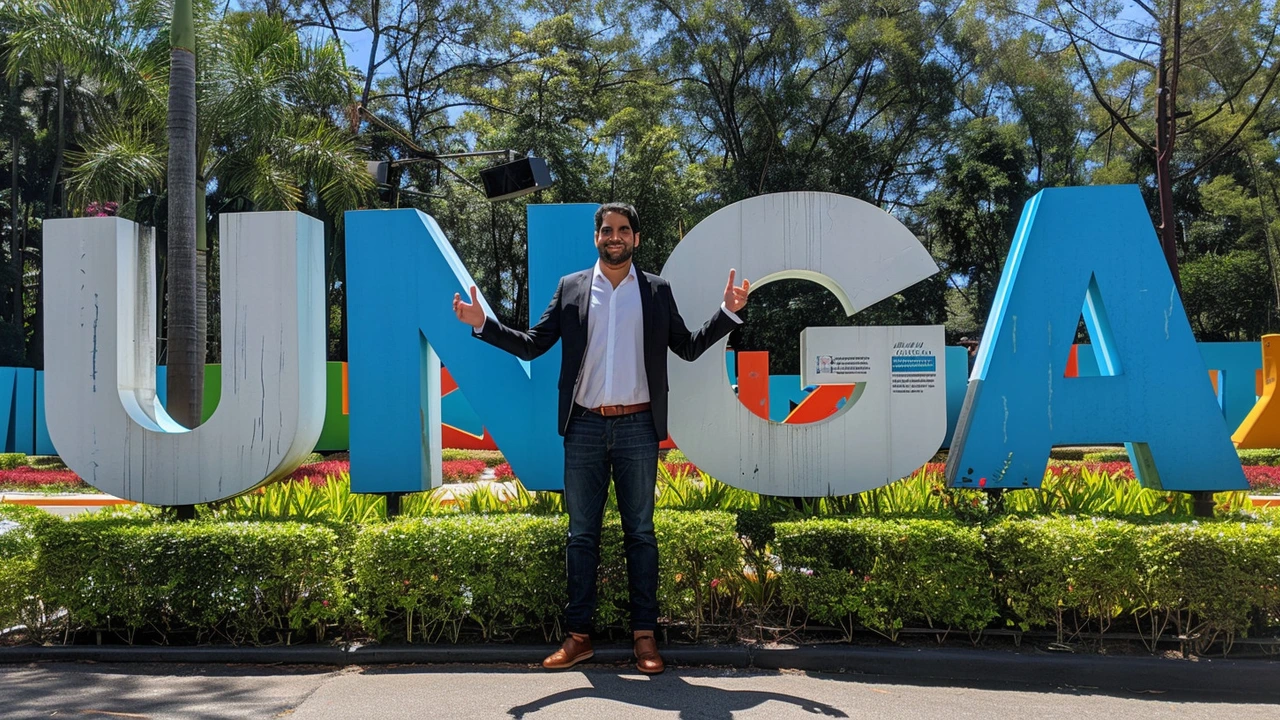The Amazon Basin Declared State of Emergency: A Turning Point in Environmental Advocacy
The Amazon Basin, often referred to as the lungs of the Earth, is now officially in a State of Emergency as declared by the Andean Parliament. This monumental decision has been greatly influenced by the relentless advocacy of Carlo Angeles, a dedicated environmental activist whose efforts have brought global attention to the dire state of this critical ecosystem. The declaration signifies a historic milestone in the ongoing fight against environmental degradation and biodiversity loss.
Carlo Angeles's journey into environmental activism began in the wake of the devastating 2017 Coastal Niño storm in Peru. The storm caused widespread destruction, displacing hundreds of thousands of people. Among those affected was a close childhood friend of Carlo, an event that profoundly impacted him. Driven by a desire to prevent such tragedies from reoccurring, he channeled his energy into championing the cause of environmental preservation.
The Path to Advocacy
In his quest to make a real difference, Carlo took on the role of chair of the Amazon Working Group at the Andean Parliament, which includes representatives from Peru, Bolivia, Colombia, and Ecuador. His leadership and passion culminated in the publication of the Andean Parliament Amazon Report. This comprehensive report shed light on the alarming statistics of deforestation and biodiversity loss within the Amazon Basin, underscoring the basin's crucial role in maintaining global ecological balance.
The report's findings were a stark wake-up call. It highlighted that deforestation in the Amazon had reached unprecedented levels, threatening not only the rich biodiversity but also the indigenous communities who call the forest their home. The data underscored an urgent need for collective action to prevent further degradation.
Declaring a State of Emergency
The content of the report, coupled with Carlo’s impassioned advocacy, led the Andean Parliament to take decisive action. On June 16, 2024, the Amazon Basin was officially declared a State of Emergency. This declaration is not merely symbolic; it aims to mobilize resources, implement stringent protective measures, and foster international cooperation to safeguard this irreplaceable ecosystem. The declaration has been met with wide support and is seen as a critical step in reversing the damage inflicted upon the Amazon.
The Amazon Pledge Campaign
In conjunction with the state of emergency declaration, Carlo and his team launched the Amazon Pledge Campaign. This campaign seeks to garner international backing and resources vital for the protection of the Amazon. The campaign's strategy involves forging strategic partnerships and mobilizing support across various sectors to implement effective conservation measures.
The Amazon Pledge Campaign has already seen participation from numerous international organizations, environmental groups, and governments. The aim is to create a global coalition dedicated to preserving the Amazon, recognizing its importance not only for the local environment but also for the global climate.
Looking to the Future at COP16
Carlo’s advocacy efforts will be a focal point at the upcoming COP16 summit in Colombia. Here, he will seek to build strong collaborations between the Amazon Cooperation Treaty Organization and the Andean Parliament. The summit provides a platform to highlight the Amazon Basin's plight and call for concerted global efforts to address it.
Furthermore, on June 4, 2024, Carlo met with Secretary General Almagro of the Organization of American States to discuss securing a U.N. resolution dedicated to the Amazon Basin’s protection. This resolution would mark another significant step in elevating the issue to the forefront of international policy.
Carlo remains optimistic about the future, driven by the collective efforts of policymakers, scientists, Indigenous leaders, and activists who are united in their mission to protect the Amazon. He emphasizes that while the challenges are immense, the resolve of the global community can make a substantial difference.
Conclusion
The declaration of a State of Emergency in the Amazon Basin is a testament to the power of dedicated advocacy and the urgent need for action in the face of environmental crises. Carlo Angeles’s work has not only brought attention to the Amazon’s critical condition but has also paved the way for concerted efforts to save this invaluable ecosystem. The journey ahead is challenging, but with unified global commitment, there is hope for the Amazon and the myriad forms of life it supports.


Owen Covach
Wow the Amazon saga finally got the spotlight it deserves. The report numbers are brutal yet clear. Deforestation stats scream for action. Indigenous voices finally echo through the corridors. Global leaders can’t ignore the alarms. The emergency declaration feels like a rare glimmer of hope. Still, the real test lies in enforcement. Money and politics often swamp good intentions. Let’s hope this time the momentum sticks. The Amazon’s lungs need a full breath of fresh policy.